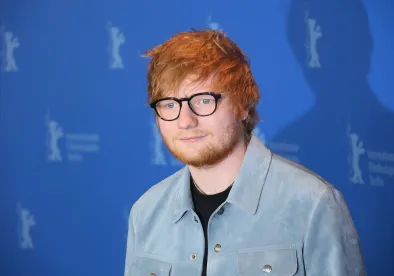Singer Ed Sheeran is currently giving evidence in a three week High Court copyright trial over his 2017 chart-topping hit “Shape of You.”
Sheeran has been accused by two musicians, Sami Chokri and Ross O’Donoghue, that his hit song, “Shape of You” plagiarises “particular lines and phrases” of their 2015 composition, “Oh Why.” The two songs in question share a similar melody.
The dispute began back in May 2018 and saw Sheeran and his co-writers prevented from obtaining an estimated £20 million in royalties from performances or broadcasts of “Shape of You” after Chokri and O’Donaghue accused Sheeran and his co-writers of “appropriating” their music. Chokri claims that he sent the track to Sheeran in a bid to work with the star, but later heard the chorus on “Shape Of You” – which became the biggest selling single of 2017 in the UK.
Sheeran’s lawyers told the High Court at that time, that the musician and his co-writers had no recollection of having heard the song in question before the dispute began and asked the High Court to declare that he and his co-writers had not infringed Chokri and O’Donoghue’s copyright, with Sheeran also stating his reputation had been tarnished by the allegations.
In July 2018, Chokri and O’Donoghue issued a counterclaim for “copyright infringement, damages and an account of profits in relation to the alleged infringement”.
In a November 2020 ruling, the parties involved “anticipated that they would incur costs in the region of £3 million between them on the dispute”.
Andrew Sutcliffe QC, for Chokri and O’Donoghue, said the question at the heart of the case was “how does Ed Sheeran write his music?” and whether he “makes things up as he goes along during songwriting sessions or whether his songwriting process involves the collection and development of ideas over time which reference and interpolate other artists.”
Whilst the trial plays out in the High Court over the course of the next three weeks, it serves as a timely reminder that content created should be original and independent to avoid falling within the remit of copyright infringement. Otherwise, the risk of copyright infringement can be reduced by:
-
Obtaining relevant authorisations and approvals from a Collective Management Organisation, such as; PPL PRS (the UK’s music licensing company) or the Copyright Licensing Agency (for printed material);
-
Obtaining relevant permissions from a copyright owner/the copyright owner’s agent which may require the payment of licencing fees;
-
Entering into an assignment of intellectual property where copyright work has been produced as part of an underlying contractual agreement; and
-
Checking any relevant copyright/licencing terms to ascertain whether there is permission to reproduce certain content.



 />i
/>i
